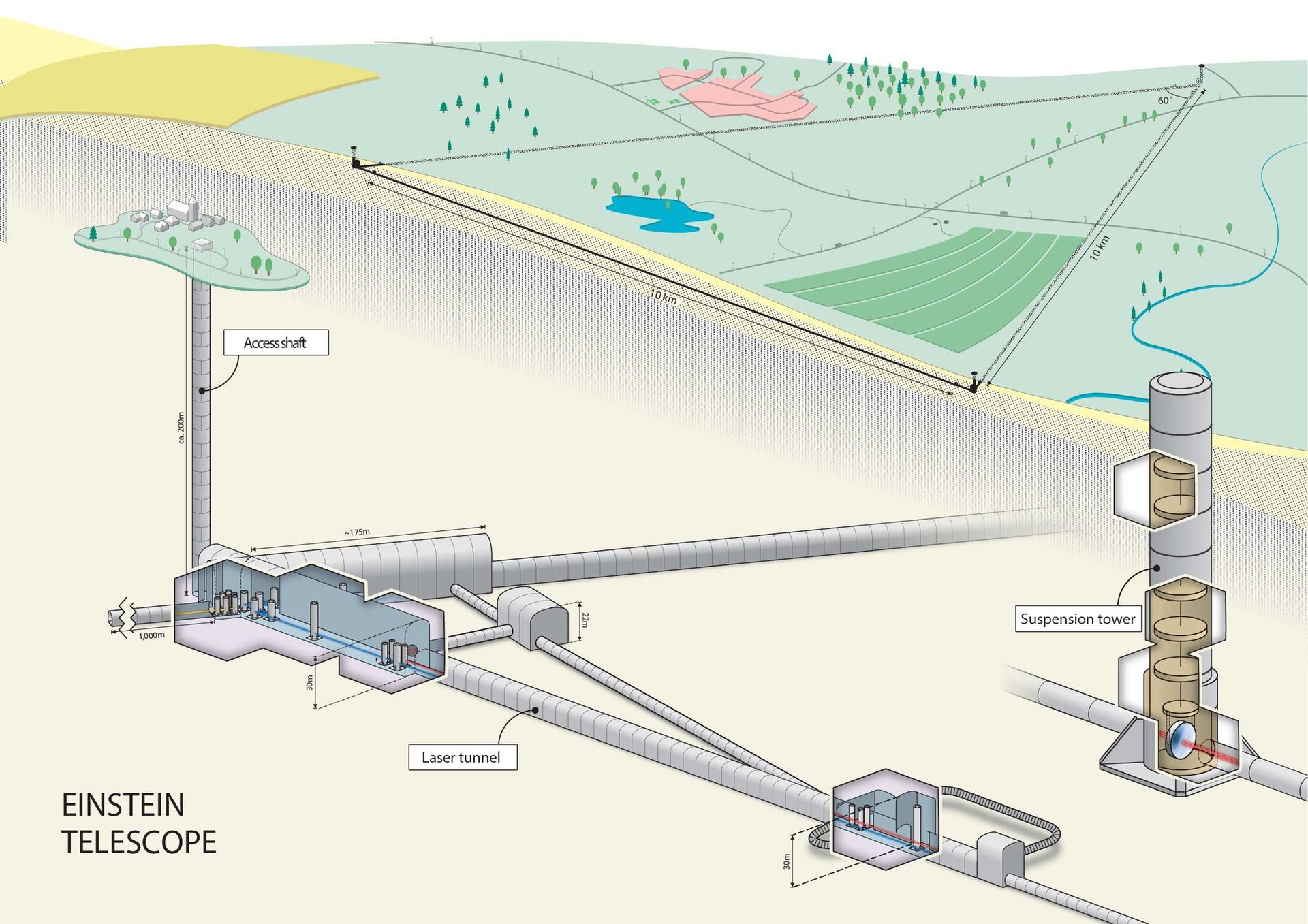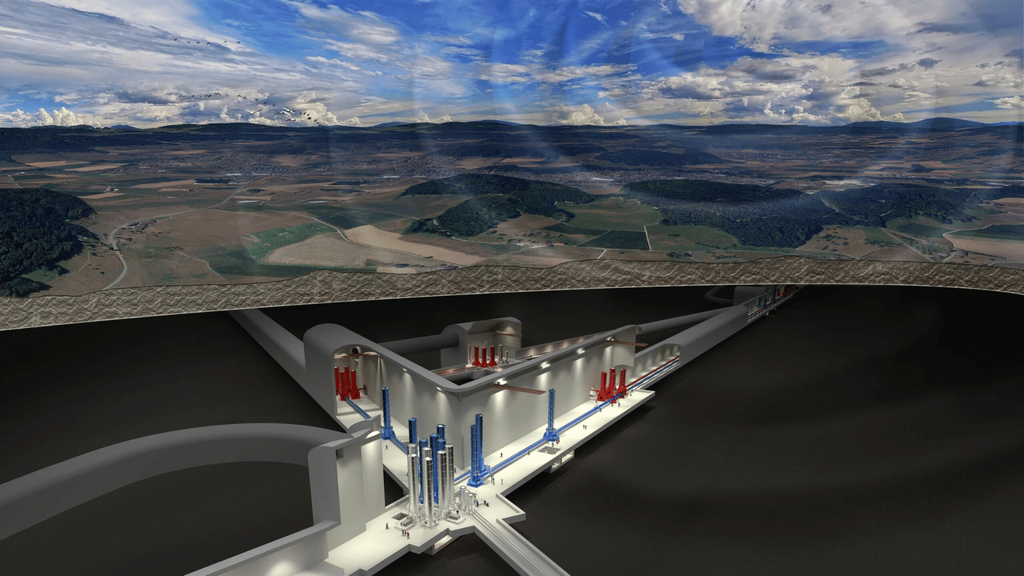During the interministerial conference in Brussels on Tuesday, Belgium, Germany and the Netherlands signed the declaration of intent for a collective bid to host the future Einstein Telescope.
The telescope is a cutting-edge astronomical instrument that listens for gravitational waves to reveal information about the nature of our universe immediately after the Big Bang.
The meeting was hosted by Flemish Minister of Innovation Jo Brouns, who said: "Today I felt a lot of positive energy to make the Einstein Telescope project a success story. The will is there to make something of it together, with the governments, with the knowledge institutions and with the companies."
Once a region is confirmed in 2026, the construction of this world's first third-generation gravitational wave detector is set to start in 2028 and hopefully finish by 2035. Along with Belgium, Germany and the Netherlands, Italy has also put Sardinia forward as a potential candidate.
An underground telescope
The telescope will record gravitational waves caused by cosmic phenomena like the collisions of black holes. It's estimated that it will be able to measure a thousand times more waves than similar existing devices, hopefully giving scientists a better understanding of the Big Bang, the cause of black holes and the structure of neutron stars.
When we hear the word telescope we tend to think of the sky, but the Einstein telescope will actually built 250-300 meters underground. Its body will consist of three 10-kilometre-long arms shaped into a triangle with chambers at its vertices and a shaft for a lift to bring maintenance crews up and down from the ground level. Laser beams will run through the arms and split into two beams reflected by mirrors in the underground chambers.
Hardly any part of the observatory will be visible above ground once the construction work is finished.
A promising location
If the multi-nation candidacy is accepted, the site would spread throughout all three territories, though about 60 to 70% would be in Wallonia. This cross-border region's soft topsoil would minimise disrupting vibrations caused by surface activity, which would allow the telescope to operate undisturbed. Additionally, it is near important research centres.

Credit: T. Balder/Nikhef
The Einstein Telescope will bring many benefits to the host country or countries, most obviously from a scientific and research perspective but also from an industrial point of view, since it will lead small and medium-sized enterprises for the construction project. The project will create more jobs, and hopefully attract local and international talent.
"With the Einstein Telescope, we have the opportunity to strengthen the Three Countries region and Belgium in particular (with the provinces of Limburg and Liège), at the centre of world science," said the Belgian Secretary of State Thomas Dermine. "Such a research infrastructure in our region represents an exceptional opportunity, both from a scientific point of view and in terms of the economic spin-offs it will generate."
Related News
- Rare moment in space communication caught on live webcam
- Belgian astronomers make puzzling discovery
- Liège astronomers discover water in space
The final decision on the location will be made by a body of delegates from the countries that are supporting this project, including Belgium, the Netherlands, Italy, Austria, Poland, Spain and the UK.
The project is currently budgeted at €2 billion for construction and €40 million for annual operation costs, with an estimated lifetime of 50 years.

